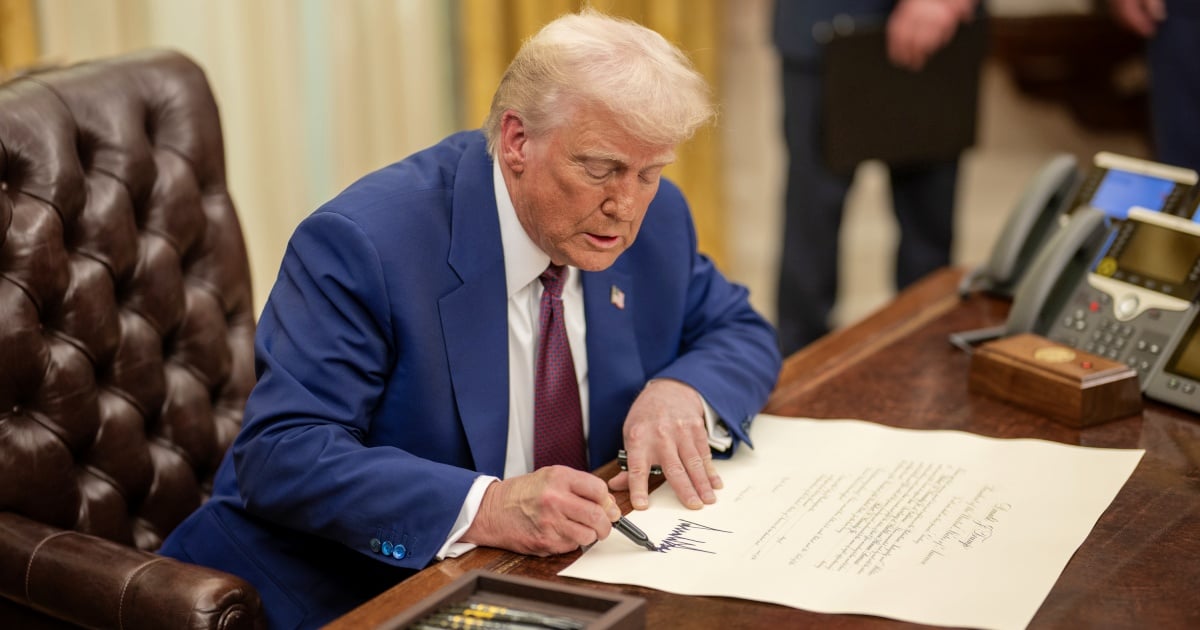On Wednesday, the Ninth Circuit Court of Appeals in the United States upheld a block on an executive order by President Donald Trump that aimed to end birthright citizenship for children of undocumented immigrants and certain other groups. This legal battle may potentially advance to the U.S. Supreme Court.
Based in San Francisco, the Appeals Court panel dismissed an emergency request from the Department of Justice to lift a previously imposed suspension by a Seattle district judge. The court ruled that Trump's decree violated the Constitution, preventing it from taking effect. The panel consisted of three judges, appointed by Trump, Jimmy Carter, and George W. Bush, respectively.
In their ruling, the judges noted that the Trump administration failed to substantiate its legal argument sufficiently to warrant an emergency intervention. Judge Danielle Forrest, appointed by Trump, concurred with the decision, writing that while she did not opine on the decree's validity, the administration had not established an "emergency" that justified its immediate implementation. "Deciding significant substantive issues with one week’s notice turns our decision-making process on its head," she stated. "We should not undertake this task unless the circumstances demand it. They do not here," she added, as reported by U.S. media.
The Principle of Birthright Citizenship
Birthright citizenship in the United States is safeguarded by the Fourteenth Amendment to the Constitution, ratified in 1868 following the Civil War. This amendment asserts that "all persons born or naturalized in the United States, and subject to its jurisdiction, are citizens of the United States and the state wherein they reside." Historically, this provision has been interpreted to guarantee automatic citizenship to any individual born on U.S. soil, regardless of their parents' immigration status.
The U.S. is among approximately 30 nations worldwide that recognize this principle, known as jus soli or "right of the soil."
Trump Administration's Arguments
Since his 2016 presidential campaign, Trump pledged to end birthright citizenship, claiming that the policy encouraged illegal immigration and facilitated "birth tourism," where pregnant women travel to the U.S. to give birth and secure citizenship for their children. In the now-blocked executive order, Trump argued that children of non-citizen parents are not "subject to the jurisdiction" of the United States, an interpretation heavily criticized by legal experts.
If enacted, the order would have denied citizenship to children of undocumented immigrants and those born to parents with temporary visas, including students and temporary workers. The Department of Justice defended the order as "a vital component of President Trump's broader effort to reform the U.S. immigration system and address the southern border crisis." The case reaching the Ninth Circuit originated from a lawsuit filed by attorneys general from four states led by Washington.
The plaintiffs argued that Trump's decree was not an immigration policy issue but rather a matter of constitutional rights. "This is not a case about 'immigration.' It concerns citizenship rights that the Fourteenth Amendment and federal statute intentionally and explicitly place beyond the president's authority to condition or deny," they wrote.
Numerous civil rights organizations have warned that the order could leave tens of thousands of children born to parents with irregular immigration status, including dreamers, refugees, and asylum seekers, in a legal limbo.
Potential Supreme Court Decision
The Ninth Circuit's rejection paves the way for the case to potentially reach the Supreme Court, where justices will decide whether to review it. In recent years, the Supreme Court has entertained several immigration policy cases presented by the Trump administration, albeit with divided rulings.
On February 6, District Judge John C. Coughenour had already halted the execution of Trump's decree, asserting that "if the Government wishes to alter the United States' exceptional right to birthright citizenship, it needs to amend the Constitution."
The Ninth Circuit's decision reinforces this stance and could shape the trajectory of the birthright citizenship debate in the coming years. Meanwhile, immigrant rights advocates celebrate the ruling as a crucial victory for protecting constitutional rights.
The Ninth Circuit's verdict marks a significant setback for Trump's aim to reform birthright citizenship through an executive order.
Key Questions on Birthright Citizenship and Legal Implications
What is the current status of birthright citizenship in the United States?
As of now, birthright citizenship is protected under the Fourteenth Amendment of the U.S. Constitution, which grants citizenship to all individuals born on U.S. soil, regardless of their parents' immigration status.
Why did the Ninth Circuit Court block Trump's executive order?
The Ninth Circuit Court blocked the order because it found that Trump's attempt to alter birthright citizenship violated the Constitution and lacked sufficient legal grounding to justify an emergency intervention.
Could this case reach the U.S. Supreme Court?
Yes, the case could potentially reach the U.S. Supreme Court, where justices will consider whether to review it, especially given the Court's history of addressing immigration policy cases.
